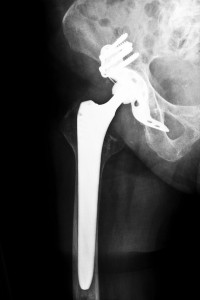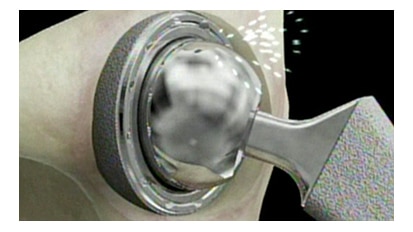 Kansas residents as well as those in other states may have heard recalled hip replacement news. When a conversation happens with a loved one or a friend regarding his or her hip replacement, it is understandable that the discussion may turn toward the question: what kind of hip replacement is involved?
Kansas residents as well as those in other states may have heard recalled hip replacement news. When a conversation happens with a loved one or a friend regarding his or her hip replacement, it is understandable that the discussion may turn toward the question: what kind of hip replacement is involved?
Identifying the Type of Hip Implant
Consider these steps to determine which hip implant device was used:
Step One – The orthopedic surgeon that originally performed the surgery is an ideal source of information. This orthopedic specialist will not only have a record of what device was used, he or she will likely be up-to-date about whether the device has been recalled.
If the surgeon has moved on from the clinic or hospital that you originally used, either one may still be able to access the records for you. Alternatively, contact your personal physician, who usually has thorough access to your electronic health records.
Step Two – Once the type of hip implant has been identified, go to the website of the U.S. Food and Drug Administration (FDA) for more information. At the page entitled FDA: Medical Device Recalls, information about a recalled hip replacement can be obtained. It the medical device has not been recalled, future recalls can be monitored by signing up for FDA email notifications.
Once armed with the name of a given hip implant device, a person can also get more information directly from the manufacturer. There may be information as to whether hip revision surgery is recommended, or whether more frequent monitoring of the hip and the patent’s health is recommended.
Step Three – Once a Kansas or other resident has information about a particular recalled hip replacement, it is possible to explore the history of lawsuits related to the device. Sometimes, large numbers of lawsuits regarding a particular device have been combined in one court. This makes it easier to monitor legal developments regarding potential monetary settlements.
These steps are just one avenue to take in order to find out the information you need to know. If you want to learn more about other ways to find out the information, or you want to know what your options are, you can contact Attorney Group for Kansas to learn more.
Allegedly Defective Hip Implants
Either a recalled hip replacement or a non-recalled implant is capable of causing problems. For example, hip device was not properly aligned during surgery, undue friction may cause walking and/or range-of-motion difficulties. Also, if the device is not properly anchored to the hip bone and the pelvic bone, it may eventually loosen, causing pain and/or poor function. Not all hip implants currently involved in lawsuits have been recalled, which is why it is important to seek legal counsel regarding your particular situation.
Metal-on-metal implants have caused concern because of the alleged release of metal debris into the body in some cases. Manufacturers used high-strength alloys in these devices, and these alloys often included chromium and/or cobalt. Excess friction in the metal-on-metal ball-and-socket joint may release toxic metals into surrounding tissue or the bloodstream. Metal poisoning has been alleged in some cases. In other cases, swelling and pain in the hip and/or groin area has been alleged.
Do You Think You Have a Hip Replacement Lawsuit?
Whether a person has a recalled hip replacement or one that has not been recalled, litigation that seeks compensation may be appropriate in certain cases if you suffered injury. To learn more about your options, please contact Attorney Group for Kansas. We can help you determine if you have a case and connect you with an affiliated attorney who can assist you throughout the legal process. Contact us today to learn more in a free consultation.






